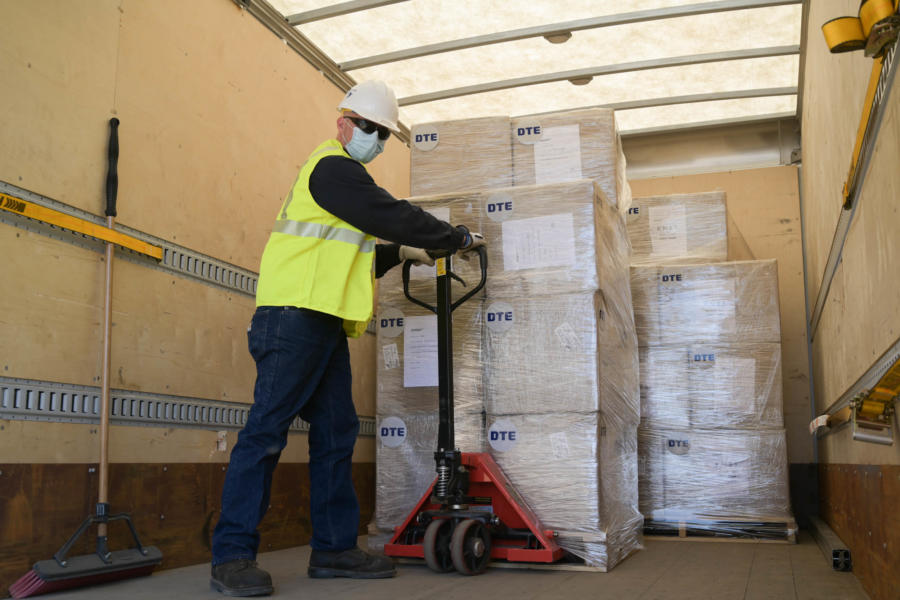As America and the global community continue to respond to the COVID-19 pandemic, certain sectors of the workforce recognized as essential services must step up to meet the dual demands of crisis management efforts and the daily needs of the population. Workers in these essential industries produce critical supplies such as food and medicine, and staff the stores where members of the public can obtain these necessary goods. However, the vital steps between production and distribution must also be maintained, making the varied elements of the supply chain likewise essential services.
Before the COVID-19 outbreak began, nearly 2 billion pallets were used throughout the United States on a daily basis to transport goods. In fact, 93 percent of all goods moved or shipped anywhere in the country rely on the use of pallets for packing and transportation. As the COVID-19 crisis pushes demand for basic supplies higher, the need for pallets has only increased. Accordingly, in March of this year the Department of Homeland Security (DHS) and the Cybersecurity and Infrastructure Security Administration (CISA) declared businesses involved in the manufacture and distribution of packaging materials, including wooden pallets, to be designated critical infrastructure. The ultimate decision regarding the regulation of business closings and the designation of essential workers rests with officials on the state and local government levels, though the recommendations and guidance issued by the DHS generally have a strong influence on their determinations.
Maintaining a smoothly functioning supply chain is more important than ever in the face of the current crisis. Medical providers and emergency responders need a reliable supply of the personal protective equipment, cleaning and sanitization supplies, and medications they need to safely treat patients, and the general public needs access to everyday goods such as groceries and prescriptions, as well as masks or other protective items to keep themselves and others safe when grocery shopping or working at essential jobs. As the COVID-19 crisis continues, the disruption and anxiety it causes in the population increases as well, making it all the more critical that basic essential goods remain reliably available. This requires a robust and adaptable supply chain, with wooden pallets as its foundation (both literally and metaphorically).
Greenway Products & Services is ideally situated to provide that critical component of a dependable supply chain to businesses in New York, New Jersey, eastern Pennsylvania, Delaware, Maryland, and surrounding areas. Recycling is a central part of Greenway’s pallet production, starting with “waste lumber” that is every bit as strong as furniture-grade wood, but not pretty enough for decorative pieces. This waste lumber is generated as a normal part of the lumber production process, and because logging companies and sawmills in New York, Pennsylvania, and Ohio have been designated essential operations in the current COVID-19 situation, the supply of waste lumber for pallet production can be relied upon for the foreseeable future. Pallets that reach the end of their useful life are recycled, so nothing is wasted and the pallets you receive to transport your goods are sturdy and reliable. Greenway’s recycling process allows us to reclaim strong and usable wood from damaged pallets to remanufacture into new pallets, saving on costs to the customer and helping to ensure that the supply of pallets meets the demand.
The COVID-19 pandemic has brought tremendous uncertainty into so many aspects of day-to-day life, with business closings, restrictions on gatherings, and shortages of basic household items. Amid such uncertainty, Greenway Products & Services, and the pallet industry as a whole, are committed to reliability, maintaining our key role in supply chains nationwide and ensuring that the essential goods that consumers need to stay safe and healthy remain dependably available.
Photo: DTE Foundation donates 100,000 respirator masks to area hospitals


Leave A Comment